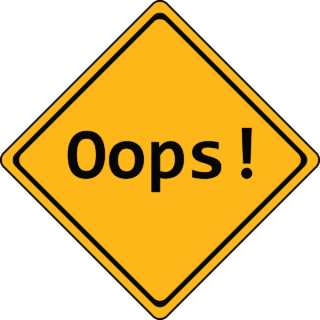The Fine Line Between Errors And Omissions And What It Means For You

When it comes to mistakes done on some work it can be counted as either an error or an omission. Both of them have the same result, work is not completed to a satisfactory standard and both can be central to a claim. However, the difference between the two can make a significant difference in how they are dealt with.
Here are some key differences between them and what they mean to your business and insurance.
What Is The Main Difference Between Errors And Omissions
The key difference between the two is that errors are often the result of work done but not correctly. For instance, an architect completing some drawings and not placing the right measurements on the schematics. The builders then work to those schematics but find the building is unsafe and the work has to be redone.
In contrast, omissions is when some work is missing from completed work. For instance, the architect includes some drawings but leaves off details about certain aspects that need to be completed to ensure the building is safe. Or, it can be when a doctor doesn’t include some test results in a final report that could help to make a final diagnosis.
What Does This Mean For You?
There is very little difference when it comes to insurance claims against you. If you make a mistake because you either have left off important details or have made an error in the work, you will still have a claim made against you.
However, errors are often considered worse and therefore payouts can be higher. In addition, sometimes omissions can be more complicated. Were test results not included in a final report because you hadn’t received them and you forgot to chase them?
This makes it harder for courts to settle claims, although you will most likely be made to make some contribution to the final settlement.
Do You Need To Worry About Errors Or Omissions?
Whatever the definition, both really don’t impact your business’ insurance. You should be protected from both. Insurance will protect you from the financial costs of defending your business and any financial payments that need to be made.
Therefore, always speak to an insurance broker about how you can be protected from error and omissions. With the right insurance, you can keep working with peace of mind.

